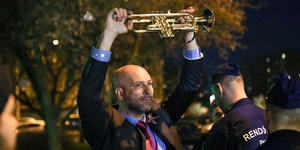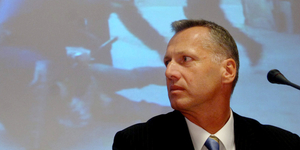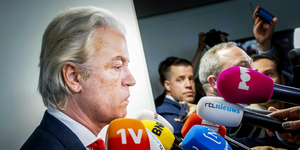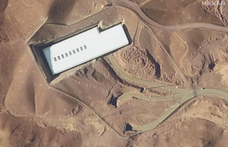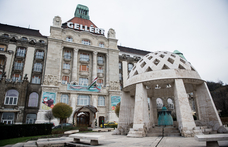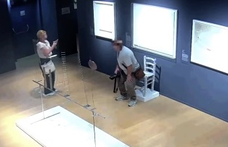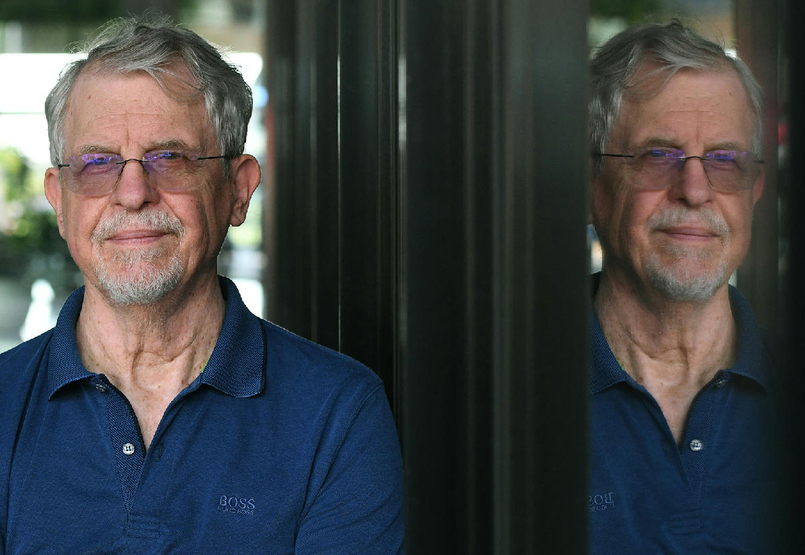Whose going to make Hungarians swallow the bitter pill?
The sociologist Tibor Dessewffy, director of the Socialist-linked Demos think tank, denies he is Gyurcsany's adviser, but admits that the two are close. He was surprised by the outcome of the referendum and thinks it too early to identify the consequences. He is certain that whichever political camp reaches power will have to force enormous sacrifices on Hungarian society - and the population is still not ready for this.
hvg.hu: As we speak, Budapest is at a standstill because of a public transport strike, and railwaymen have downed tools as well. How does a Socialist-inclined intellectual see this?
The situation mirrors recent changes. Employees' associations were frozen for 15 years after the regime change, and so there were few strikes. It's clear that the convergence programme must be carried through, whoever is in government, and this will put a brake on employees' ambitions. We're in a difficult situation, regardless of whose fault the budgetary situation is.
hvg.hu: Demos is a kind of Socialist Party think tank. Are you a personal adviser to Ferenc Gyurcsany?
Demos is misunderstood. It is a pragmatic research institute. Its aim is to shape public opinion and promote new ways of thinking. I'm not a contracted adviser to the PM with regular slots in his diary. The PM has several informal advisers, including Andras Keszthelyi, Zsolt Greczy, Balazs Varadi and others. As a sociologist, I have a particular way of seeing the world, and this worldview is similar to Ferenc Gyurcsany's. We have similar views on many things, which means I support his policies.
hvg.hu: But it is precisely these policies that have been called into question by the referendum. Last December, Demos published a study about the prospects for a minority government in Hungary. Does this mean Demos was expecting the referendum result we got?
One of Demos's research groups looked into the matter. He had already been looking at Socialist-Liberal coalitions in Europe, at breaking points. There was a growing argument within the coalition about health insurance, so it was logical to look at what was going on at home. But this doesn't mean we had predicted the referendum's outcome. I was surprised by the result, because most referendums until now had had a lower turnout than forecast. This time, most of the pollsters were accurate - something we've never seen before. The main reason, of course, is that no referendum until now has had such direct financial consequences for people's wallets.
hvg.hu: That's only because there was no time for the Socialist Party's referendum questions to be asked before the 2002 elections. The Socialists demanded free language tests - which would have cost as much as abolishing the surgery and hospital fees will.
That's true, but it's also true that both camps have used every tool at their disposal to get at the other side. Certain Fidesz leaders and their allies in the press would like to exclude Ferenc Gyurcsany from the nation altogether - trying to portray him as something inhuman. I can't accept this mood - and I'm not prepared to use such means, not even against the conservative side.
hvg.hu: Orban was demonised, Gyurcsany was demonised. Isn't that just politics?
Except Nepszabadsag clearly writes in more acceptable terms about Orban than the Magyar Nemzet does about Gyurcsany. Look at the books that have been written about them. But, returning to the social demagoguery of the referendums - I would regard it as a tragedy if the opposition party's rhetoric were as deceptive as in 2002 or 2006.
hvg.hu: What were you trying to achieve with your recent article about Hungarian intellectuals?
With my co-author, I was trying to address two groups. We've had several generations of left-wing intellectuals, and they've all protested at a lack of reforms. Now, when the leadership is taking concrete steps towards promoting individual responsibility, intellectuals did not stand up for the surgery fee and tuition fees. Instead, they washed their hands of the problem. You can't demand reforms and then fail to back them. Then you have the centre-right intellectuals, who claim to support conservative, neoliberal, modernising principles - and they should be supporting Gyurcsany's reforms based on this logic. But symbolism prevented them from doing so. There were exceptions on both sides. Istvan Hamecz was write when he said he disagreed with the government on many things,, but that he supported the surgery fee. Unfortunately, political commitment makes this kind of objectivity almost impossible.
hvg.hu: Peter Medgyessy thinks Ferenc Gyurcsany should have resigned after the leaking of the Oszod speech. What can you do about the PM's steadily declining authority?
To win back his credibility, the PM has to meet certain requirements. The collapse of the coalition has made things still more difficult, and now the question is whether minority government can work effectively. We don't know yet.
hvg.hu: Once again, there is talk of a government of experts. Some say that Gyurcsany has started many reforms but not brought a single one to completion. People say he is weak and indecisive - and that he should therefore go.
I see his character and achievements differently. The more important thing is that the coalition partners' arguments are not about personal issues. Do you think things will change if Gyurcsany leaves? It looks like the Free Democrats have finally realised their own identity and insisted on further, more dramatic cuts. The Socialist Party is not prepared to accept this, regardless of who the PM is. Andras Simor or Katalin Szili or Peter Kiss wouldn't be able to do things any differently as prime minister.
hvg.hu: So there's no alternative to early elections?
I certainly didn't say that. You can't think deterministically about politics, because identity, emotion and even hysteria play important roles. Early elections are one option, but not the only one. A minority government is not doomed to failure. The idea I'm hearing from some friends on the Right, that the collapse of the coalition was a planned, staged piece of theatre, is also untrue. You can't exclude the possibility of the Free Democrats growing stronger outside the coalition, nor of the Socialist Party's popularity growing. But it's also possible that the liberals have taken too long to develop their own independent identity.
hvg.hu: Over the past six months, social issues have become dominant in political discourse. In spring 2006, Fidesz was already focusing on this - and now this strategy is paying off. Are we really living "worse than four years ago?
Yes we are, unfortunately. In 2006, Fidesz's campaign was too early. The convergence programme is really starting to bite now. It's also true that the opposition chose a good tactic in symbolic terms. You have outrages like the Magyar Garda - and Fidesz has been very effective in leaving the far right to itself. Viktor Orban and his party are employing much better tactics than formerly.
hvg.hu: Whatever happens in the next few months, whoever is in government will have to cut social expenditure dramatically. The question is how people will deal with this.
Brutal cuts may prove too much for Fidesz as well, given that Hungarian society can't deal even with mild belt-tightening measures like the surgery fee. The roles have been reversed: the right is campaigining with left-wing slogans, and this means that Viktor Orban will have to bring about the Ft2-2.5bn cuts that Andras Simor is speaking about - and he won't be able to do it on his own. Or if he does, then only by frightening people with the bogeyman of Communism.
János Pelle

